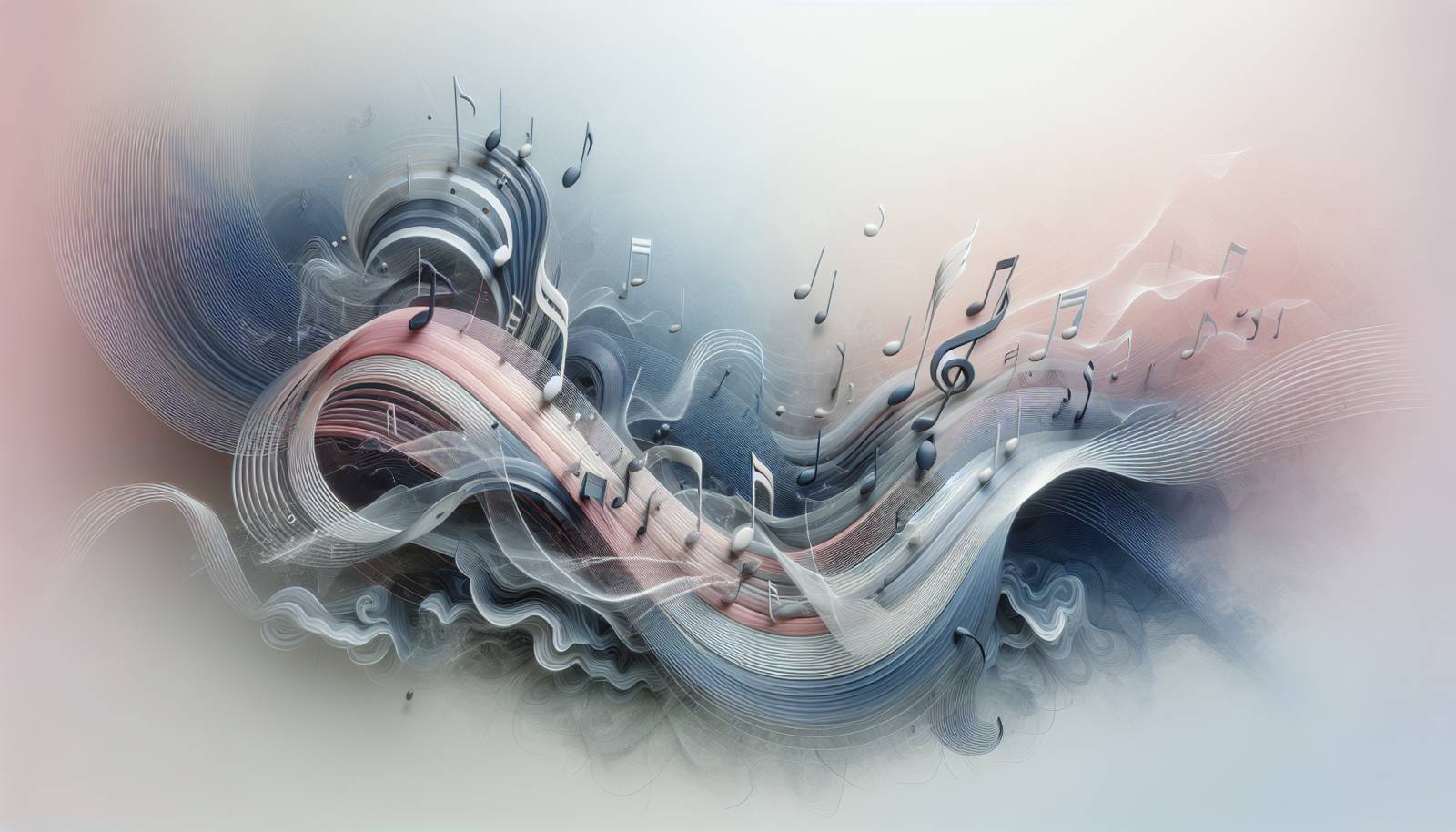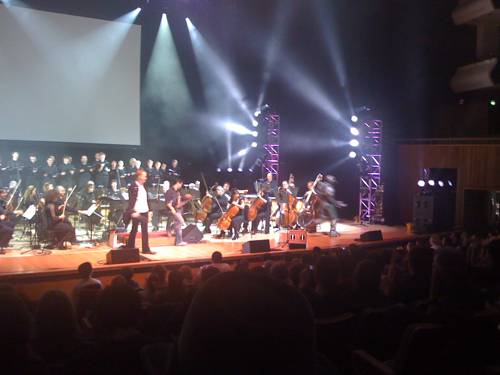
FAQ About The Influence of Gaming Music on Modern Classical Composition

How does video game music influence modern classical composition?
Video game music influences modern classical composition by integrating elements of digital soundscapes, thematic development, and emotional storytelling typical of games. Composers are inspired by the unique blend of synthesized and traditional instruments, which enables them to explore new textures and rhythms within classical frameworks. This integration also encourages innovation in classical music by adopting non-linear and adaptive scores that reflect the player's emotions and actions in real-time.

What are some examples of video game music impacting classical compositions?
Examples of video game music impacting classical compositions include orchestral concerts dedicated to video game scores, such as those featuring the music of "The Legend of Zelda" and "Final Fantasy." Additionally, contemporary composers like Austin Wintory, known for his work on the game "Journey," have received recognition in the classical music world, even earning Grammy Award nominations. Their work demonstrates how video game scoring techniques can translate into classical music compositions.

Are there any famous classical composers influenced by video game music?
Some modern composers who have acknowledged the influence of video game music include Eric Whitacre and Christopher Tin. These composers recognize video game music's innovative approach to storytelling and sound design, which informs their contemporary classical works. This influence is evident in how they incorporate diverse musical elements and narratives into their compositions.

How do modern classical composers incorporate digital sounds from video games into their work?
Modern classical composers incorporate digital sounds from video games into their work by blending electronic synthesizers with traditional orchestral instruments. They may use sampling technology to replicate sounds from games or create new digital textures that harmonize with classical motifs. This fusion allows composers to explore dynamic contrasts and expand the sonic possibilities of their compositions.

What role does emotional storytelling in video games play in classical music composition?
Emotional storytelling in video games plays a crucial role in classical music composition by providing new narrative frameworks and thematic depth. Composers utilize the emotive power of video game music, which often conveys a player's journey and feelings, to craft immersive and dynamic classical pieces. This approach can result in more compelling and empathetic works that resonate with audiences on a deeper emotional level.

Can video game music be considered a form of classical music?
While video game music shares some characteristics with classical music, such as orchestral arrangements and thematic development, it sits at the intersection of various musical styles, including electronic, ambient, and popular music. However, as more composers from the classical world engage with video game music, the lines between these genres blur, leading to compositions that embody both traditions.

How do composers balance the elements of traditional orchestration with digital sounds in their compositions?
Composers balance traditional orchestration with digital sounds by carefully selecting which elements from each domain best serve their artistic vision. They might integrate digital sounds as background textures or highlight them in conjunction with acoustic instruments for greater impact. This balance often involves innovative approaches to composition and orchestration to ensure coherence and harmony between the elements.

What are the common themes in video game music that appeal to classical composers?
Common themes in video game music that appeal to classical composers include heroism, adventure, exploration, conflict, and resolution. These universal themes provide fertile ground for composers to develop rich, emotive narratives within their classical works. Video game music's ability to evoke powerful emotions through these themes makes it particularly attractive to classical composers seeking to infuse their work with contemporary relevance.

How has the collaboration between video game composers and classical musicians evolved?
The collaboration between video game composers and classical musicians has evolved significantly, with many classical ensembles and orchestras now performing video game music in concert settings. This trend has encouraged a cross-pollination of ideas and techniques, as classical musicians bring their expertise to video game music and vice versa. These collaborations have resulted in new, hybrid forms of composition that enrich both fields.

What is adaptive music, and how is it used in video game compositions?
Adaptive music is a type of music composition that changes dynamically in response to player actions and game events. In video game compositions, adaptive music enhances the gaming experience by altering the score based on gameplay, creating a more immersive and interactive experience. This technique has influenced modern classical composers interested in crafting responsive, real-time musical narratives in their compositions.

How do video game concerts influence public perception of both game and classical music?
Video game concerts influence public perception by showcasing the artistry and complexity of video game scores, often played by full orchestras. These events elevate the cultural status of game music, drawing parallels to classical music's grandeur and sophistication. As a result, audiences may gain a greater appreciation for both video game and classical music genres, recognizing the skill and creativity involved in their composition.

Do video game music compositions receive recognition in the classical music world?
Yes, video game music compositions receive increasing recognition in the classical music world. This is evident through performances at major concert halls, collaborations with renowned orchestras, and even Grammy nominations, such as Austin Wintory's score for the game "Journey." Such recognition highlights the artistic value and cultural significance of video game music within broader musical contexts.

What specific elements of video game compositions make them interesting for classical composers?
Specific elements of video game compositions that intrigue classical composers include the use of leitmotifs, thematic development, complex rhythms, and a blend of acoustic and digital instrumentation. These compositions often feature innovative structures that challenge traditional forms, providing new avenues for classical composers to explore and expand their musical palettes.

How has technology influenced the current relationship between video game music and classical composition?
Technology has greatly influenced the relationship between video game music and classical composition, allowing for new methods of sound production and distribution. Advanced software enables composers to experiment with electronic sounds and real-time adaptive scoring in ways that were previously impossible. This technological advancement has facilitated greater integration and collaboration between the fields, driving innovation and expanding the boundaries of classical music.

Are there any music festivals dedicated to video game music that also feature classical music?
Yes, there are music festivals dedicated to video game music that also feature classical music elements. Events such as 'Video Games Live' and 'Game Sound Con' celebrate the artistry of game music while often including performances by symphony orchestras and chamber musicians. These festivals highlight the connections between video game and classical music and promote the appreciation of both genres.

In what ways does video game music challenge traditional classical music compositions?
Video game music challenges traditional classical music compositions by introducing non-linear structures and adaptive elements that respond to gameplay. This requires composers to think beyond conventional forms and embrace flexibility and spontaneity in their work. Additionally, the integration of digital sounds and hybrid instrumentation broadens the sonic possibilities and challenges existing notions of what classical music can encompass.

How does the gaming industry support or influence classical music artists?
The gaming industry supports and influences classical music artists by creating opportunities for collaboration and exposure. Many games feature full orchestral scores, employing classical musicians and composers. This collaboration introduces classical artists to new audiences and inspires them to integrate innovative gaming techniques and themes into their work, enhancing cross-genre creativity and visibility.

What future trends might we see in the integration of gaming music with classical composition?
Future trends in the integration of gaming music with classical composition may include the increasing use of virtual and augmented reality technologies in music performances, allowing for immersive experiences that blend visual and auditory elements. Composers might also explore more interactive concert formats that incorporate adaptive music techniques, creating personalized soundscapes for audiences.

How do educational institutions incorporate video game music in classical music curricula?
Educational institutions incorporate video game music in classical music curricula by offering courses that explore the history and composition techniques of game music. These programs might involve analyzing iconic scores, understanding adaptive music systems, and composing music for games as part of the curriculum. This inclusion reflects the evolving landscape of contemporary music education and its recognition of video game music's impact.

Why is video game music becoming increasingly popular among classical composers?
Video game music is becoming increasingly popular among classical composers due to its innovative use of technology, compelling storytelling, and unique musical structures. These elements offer new creative challenges and opportunities for composers to experiment with form and sound. The cultural resonance and emotional depth of video game scores also appeal to composers seeking to connect with contemporary audiences in meaningful ways.
